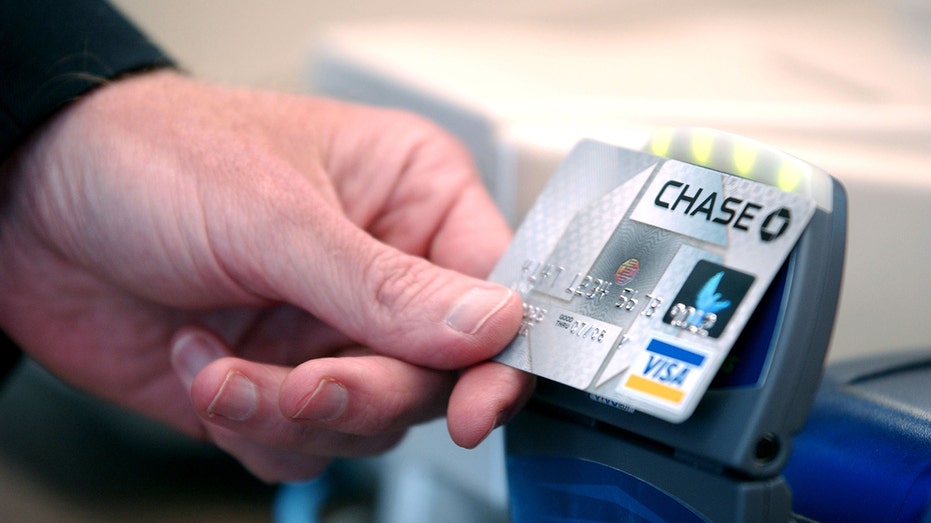How to tackle your financial resolutions in 2024
10 tips for sticking with your financial resolutions all year long
Fox Business Flash top headlines for December 23
Check out what's clicking on FoxBusiness.com.
Many Americans take the New Year as an opportunity to get their finances on track. In fact, 36% more Americans planned on making finance-related New Year’s resolutions in 2024, according to WalletHub.
Money-focused resolutions are a great first step toward reaching your financial goals, but it’s important to properly structure those goals to make them attainable and realistic.
These financial tips will help you not only establish strong financial resolutions, but stick with them for the year and years to come.

Many Americans make financial goals part of their New Year's resolutions. (iStock / iStock)
SAVE MORE MONEY: 10 CLEVER WAYS TO CUT SPENDING ON UNNECESSARY ITEMS
- Set up specific and attainable goals
- Establish some sort of budget, any sort of budget
- Decide how much you want to save and what you want to save for
- Open a high-yield savings account
- Figure out a method for reducing your debt
- Automate as many things as you can
- Sign up for a credit card with rewards
- Start contributing toward your 401(k)
- Set up a meeting with a financial adviser
- Be flexible
1. Set up specific and attainable goals
When it comes to any goals, no matter what they are, they need to be realistic and specific. When it comes to financial goals, in particular, your goals should include precise numbersnand steps to reach your goal.
For example, "I want to start saving more" isn’t a specific goal, and it’s very difficult to measure success. To make it more specific, think more along the lines of saving $1,000 per month.
2. Establish some sort of budget, any sort of budget
There are so many ways to budget, and there is no right or wrong way to do it. Some people have very detailed budgets, and they mark down everything they spend money on every month. Others have a more relaxed budget, keeping an eye on spending, but not as strictly.
5 FINANCIAL BOOKS THAT AREN'T FILLED WITH FALSE PROMISES, AND WILL ACTUALLY HELP YOU SAVE MONEY

An unplanned expense can severely throw off your financial goals. It's important to build an emergency fund you can pull from when unexpected bills arise. (iStock / iStock)
You should always keep an eye on your spending and, at the very least, know what is coming in and out of your account each month.
You could always budget the old-fashioned way with a pen and paper, or you could go with a more technologically sound approach by downloading a budgeting app that will help keep track of your spending for you.
Popular budgeting apps include Goodbudget, PocketGuard, Honeydue and NerdWallet.
3. Decide how much you want to save and what you want to save for
When it comes to saving, you’ll likely have a lot of different goals. A good place to start is an emergency fund.
HOW TO CHOOSE THE BEST HIGH-YIELD SAVINGS ACCOUNT: 5 THINGS TO LOOK FOR
According to WalletHub, building up an emergency fund "should be one of the first orders of business for any financial makeover" in case of unexpected job loss or unexpected medical expenses.
WalletHub reported that the best way to build an emergency fund is to "chip away at it over time," rather than try to create an emergency fund overnight. Many sources like NerdWallet and Vanguard agree that between three and six months of living expenses should be set aside in an emergency fund.
Besides that, there may be other things that you want to save for, like travel, a future home, a wedding or maybe a new car. Many online savings accounts will allow you to have multiple "buckets" within your account, allowing you to split up your money and dedicate each account to different savings goals.

Many banks allow you to split up your savings so you can save for different goals. (iStock / iStock)
Doing this will give you a clear picture of how much you have for all your specific goals, rather than just one giant savings account that all of your money is flowing into.
4. Open a high-yield savings account
A high-yield savings account is a great way to build your financial wealth over time. High-yield savings accounts typically offer 4-5% APY rates.
High-yield savings accounts are easy to open and can be done online. Many banks have high-yield savings accounts, so you can shop around and find one that works for you and best fits your needs.
One factor to consider with high-yield savings accounts that sometimes prevents individuals from opening them is that the money is typically a little harder to access. When signing up for an account, make sure you sign up for one that doesn’t include any fees for taking out money. There are plenty of banks that allow you to make as many transactions as you’d like. They just typically take a few days to reach your checking account.

A high-yield savings account can be opened online. (iStock / iStock)
5. Figure out a method for reducing your debt
Whether it’s college loans, a car loan, credit card debt or a mortgage, many Americans live with debt.
Seventy-seven percent of Americans live with some form of household debt, according to Ramsey Solutions. There are a few different popular options to pay down debt.
One way Dave Ramsey suggests when it comes to paying down debt is through the "debt snowball method." With this strategy, you pay off your debts from the smallest debt to the largest and don’t worry about the interest rates associated with each one.
HOW TO PAY OFF $10,000 IN CREDIT CARD DEBT
The first step to using this method, according to Ramsey’s website, is to list all of your debts from smallest to largest and begin to make minimum payments on everything but put extra money toward the smallest debt. Once that is entirely paid off, start dumping money into the next smallest debt. Keep going with this method until you knock out all your debts.
This method is a favorable one because it helps keep you motivated since you’ll be able to pay off your debts faster.

It's essential to pay off your debts to save yourself from stress and keep your hard-earned money in your pocket. (iStock / iStock)
The debt avalanche, another method put forth by Ramsey, suggests you pay your debts in order from the highest interest rate to the lowest, no matter what the balance of each debt is. This method can be successful, but is often difficult to maintain since it will take you longer to knock out your debts, which may leave you discouraged.
6. Automate as many things as you can
Automating your finances is a great way to pay your bills and save money with very little effort.
Automating your bills takes a lot of stress away from you because you don’t have to worry about running into expensive late fees. Go through your bills and see which are eligible for automatic payments and get those set up.
Credit card bills in particular are a great candidate for automatic payments. WalletHub recommends a strategy of setting up automatic payments right after you receive your paycheck and a second one a few days before your monthly due date.
You can also automate accounts like your savings and investments. Many banks allow you to establish a set amount to transfer from checking into savings at a determined frequency. This will allow your savings to grow, without you having to manually move money from one account to another.
7. Sign up for a credit card with rewards
If you’re going to be spending money anyway, you might as well get rewarded for it. There are lots of credit cards that offer rewards in different ways.
Certain cards allow you to earn cash back for your purchases, while others provide points that can be used towards travel-related expenses like airline tickets or hotel stays.

Reward credit cards give you money or points back for purchases. (Thomas Cooper/Getty Images / Getty Images)
WHAT IS A 401K? ALL YOU NEED TO KNOW ABOUT MANAGING YOUR RETIREMENT PLAN
Many of these cards have annual fees associated with them, but there are plenty of others that do not.
8. Start contributing toward your 401(k)
Many Americans spend years working, inching closer and closer to retirement, before they really start to think about a 401(k).
The truth is, the earlier you start contributing toward retirement, the better you’ll make out in the long run. When you are in the early years of your career, a 401(k) is an easy thing to push aside and save for later.
Many Americans wait until their 30s to begin saving for retirement, but beginning in your 20s can be a huge benefit.
Not only does starting early allow you to expand your wealth, it will create a good habit of putting money away. If you spend years getting used to making a certain income, and then have to start putting more toward retirement, it can be a lot more difficult than if you started small and early.
9. Set up a meeting with a financial adviser
Financial advisers are a great resource to turn to with your financial questions. They can help you establish your financial goals and provide you with tools on how to stick to them.
GET FOX BUSINESS ON THE GO BY CLICKING HERE

Financial advisers can provide expert guidance for individuals or couples who have complex finances. (iStock / iStock)
When choosing a financial adviser, make sure to look into their background and be certain they have all the proper credentials. NerdWallet recommends a handful of questions you should ask your adviser during your first meeting. These include:
- Are you a fiduciary?
- How do you get paid?
- What are my all-in costs?
- What are your qualifications?
- What’s your investment philosophy?
10. Be flexible
Any goal is hard to stick to, especially when it comes to finances. At some point throughout the year, it's more than likely your goals need to be adjusted.
Allow yourself the grace to adjust your goals when you need to. You may also establish new financial goals throughout the year. You by no means need to stick to the same goal a full 365 days.





















